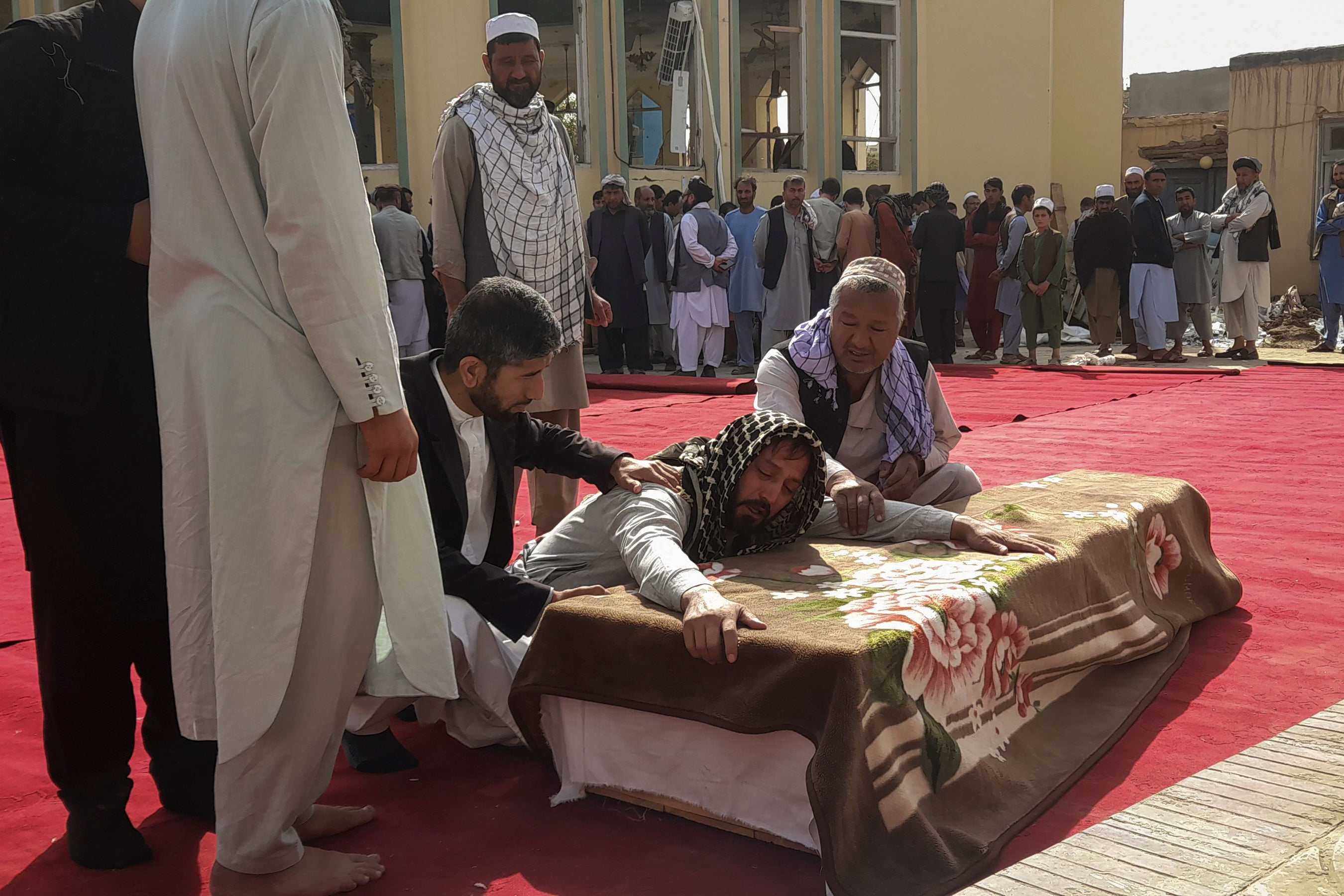Taliban says US will provide humanitarian aid to Afghanistan
The Taliban say Washington has agreed to provide humanitarian aid to a desperately poor Afghanistan on the brink of an economic disaster, while refusing to give political recognition to the country’s new rulers

Your support helps us to tell the story
From reproductive rights to climate change to Big Tech, The Independent is on the ground when the story is developing. Whether it's investigating the financials of Elon Musk's pro-Trump PAC or producing our latest documentary, 'The A Word', which shines a light on the American women fighting for reproductive rights, we know how important it is to parse out the facts from the messaging.
At such a critical moment in US history, we need reporters on the ground. Your donation allows us to keep sending journalists to speak to both sides of the story.
The Independent is trusted by Americans across the entire political spectrum. And unlike many other quality news outlets, we choose not to lock Americans out of our reporting and analysis with paywalls. We believe quality journalism should be available to everyone, paid for by those who can afford it.
Your support makes all the difference.The U.S. has agreed to provide humanitarian aid to a desperately poor Afghanistan on the brink of an economic disaster, while refusing to give political recognition to the country's new Taliban rulers, the Taliban said Sunday.
The statement came at the end of the first direct talks between the former foes since the chaotic withdrawal of U.S. troops at the end of August.
There was no immediate comment from the U.S. on the weekend meeting.
The Taliban said the talks held in Doha Qatar, “went well,” with Washington freeing up humanitarian aid to Afghanistan after agreeing not to link such assistance to formal recognition of the Taliban.
The United States made it clear that the talks were in no way a preamble to recognition of the Taliban, who swept into power Aug. 15 after the U.S.-allied government collapsed.
Taliban political spokesman Suhail Shaheen also told The Associated Press that the movement's interim foreign minister assured the U.S. during the talks that the Taliban are committed to seeing that Afghan soil is not used by extremists to launch attacks against other countries.
On Saturday, however, the Taliban ruled out cooperation with Washington on containing the increasingly active Islamic State group in Afghanistan.
IS, an enemy of the Taliban, has claimed responsibility for a number of recent attacks, including Friday's suicide bombing that killed 46 minority Shiite Muslims. Washington considers IS its greatest terrorist threat emanating from Afghanistan.
“We are able to tackle Daesh independently,” Shaheen said when asked whether the Taliban would work with the U.S. to contain the Islamic State affiliate. He used an Arabic acronym for IS.
Bill Roggio, a senior fellow at the Foundation for Defense of Democracies who tracks militant groups, agreed the Taliban do not need Washington's help to hunt down and destroy Afghanistan's IS affiliate, known as the Islamic State in Khorasan Province, or ISKP.
The Taliban "fought 20 years to eject the U.S., and the last thing it needs is the return of the U.S. It also doesn’t need U.S. help,” said Roggio, who also produces the foundation's Long War Journal. “The Taliban has to conduct the difficult and time-consuming task of rooting out ISKP cells and its limited infrastructure. It has all the knowledge and tools it needs to do it.”
The IS affiliate doesn't have the advantage of safe havens in Pakistan and Iran that the Taliban had in its fight against the United States, Roggio said. However, he warned that the Taliban's longtime support for al-Qaida make them unreliable as counterterrorism partners with the United States.
The Taliban gave refuge to al-Qaida before it carried out the 9/11 attacks. That prompted the 2001 U.S. invasion of Afghanistan that drove the Taliban from power.
“It is insane for the U.S. to think the Taliban can be a reliable counterterrorism partner, given the Taliban’s enduring support for al-Qaida,” Roggio said.
During the meeting, U.S. officials were expected to press the Taliban to allow Americans and others to leave Afghanistan. In their statement, the Taliban said without elaborating that they would “facilitate principled movement of foreign nationals."